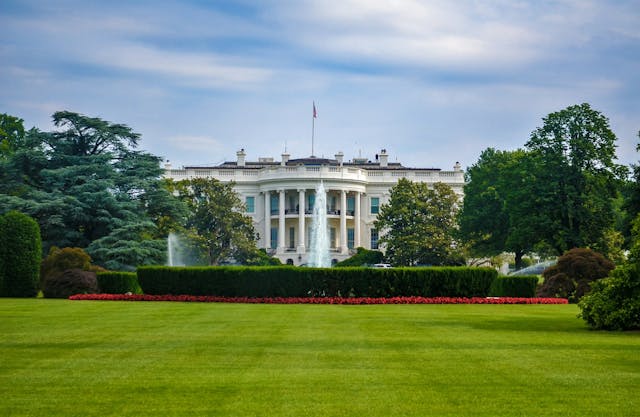Prohibition Spawned Mexico’s Oldest Drug Cartel

Those old enough to remember Prohibition in the United States remember it as a controversial and violent era. The passage of the Eighteenth Amendment and Volstead Act by Congress in 1919 prohibited the manufacture and sale of “intoxicating liquor” for recreational use and Prohibition began in January 1920.
The alcohol ban, long championed by the temperance movement, was enacted with the intention of simultaneously lowering the rate of crime and alcoholism in the United States. However, it is often said that the road to hell is paved with good intentions. Rather than lowering either the crime rate or alcoholism, the great social experiment wreaked havoc on communities nationwide.
A study of over 30 major US cities showed crime had risen by 24 percent between 1920 and 1921, including a 13 percent rise in homicides and 45 percent increase in drug addiction.
Another unforeseen consequence was the major boost Prohibition provided for organized crime. This phenomenon was a matter of simple economics: Americans wanted to drink.
Following the law of supply and demand, people from all walks of life created a demand for liquor and criminal organizations supplied that demand through the production and distribution of contraband liquor. These crime groups were willing and able to resort to the necessary corruption and violence against law enforcement and rival alcohol cartels in order to protect their lucrative trade.
Prohibition and Mexico
While Al Capone grew wealthy in the Midwest and Enoch Johnson ruled his boardwalk empire in the Northeast, other entrepreneurs were busy elsewhere. Juan N. Guerra, a Mexican national from Matamoros, entered the bootlegging business in 1929 and quickly took control of all liquor moving across the Rio Grande into South Texas.
Not long after Prohibition’s repeal in 1933, “Don Juan” switched his crime family’s focus to a newly lucrative cash crop. The Marijuana Tax Act of 1937 -- passed after only two hours of Congressional hearing—imposed punitively high taxes on the cash crop, driving it from the free market to the black market and increasing both its scarcity and profitability.
Like many drug lords in the mid-twentieth century, “Don Juan” Guerra filled the patronage void which grew as elderly warlords from the Mexican Revolution passed away. Guerra was known for helping the needy by contributing money to churches, charities, and schools while also destroying his rivals and bribing local officials to look the other way. The drug lord is even credited for the 1960 assassination of police commander Juan Octavio Villa Coss, son of Pancho Villa.
With age catching up to him by the 1970s, the drug lord named his nephew Juan Garcia Ábrego his successor. Ábrego responded to new trends and new opportunities in the underground market following the initiation of the War on Drugs by the Nixon administration and its escalation by the Carter and Reagan presidencies.
Though cocaine and the other contraband trafficked by the decades-old cartel had been illegal for decades, the War on Drugs and its crackdowns made these drugs more profitable than yesterday’s commodity, marijuana.
Like Prohibition in the 1920s, government bans and enforcement backfired by making these hard drugs scarcer, in greater demand, and increasingly profitable for the criminal syndicate. By the 1980s, Guerra’s empire had become known as the Gulf Cartel. The cartel stepped up its operations and received half its cocaine from Colombia’s Cali Cartel, another cartel targeted by the U.S. government in its War on Drugs.
Following Ábrego’s 1995 arrest and incarceration, Osiel Cárdenas became the new head of the Gulf Cartel. In order to protect himself and other cartel leaders from rival cartels and the Mexican government, Cárdenas hired Mexican Army lieutenant Arturo Guzmán Decena to recruit soldiers to work for the cartel.
Decena recruited 30 special forces commandos to desert from the Army and form the paramilitary wing of the Gulf Cartel. This narco-insurgency steadily grew to become an independent cartel, Los Zetas, and introduced new levels of brutality to the dog-eat-dog drug trade.
The current Mexican Drug War erupted in 2006 when then-president Felipe Calderón sent federal troops on the offensive against several cartels. The result only made the problem worse, as Mexico descended into an ongoing chain of criminal and state violence bordering on civil war.
Today, the government continues to battle the competing cartels, though high numbers of infiltrators in the military and police undermine the effectiveness of government operations. Zeta Magazine, a dubiously named albeit well-respected periodical, reports the death toll from this quasi-civil war to be over 109,000 as of June 2013.
Many have compared the War on Drugs to Prohibition, as the two episodes of history are eerily similar and quite literally related. After all, Prohibition spawned the Gulf Cartel. Homicide rates in America had reached a peak in the final year of Prohibition, but following its 1933 repeal the murder rate declined nearly 40 percent. No one knows exactly why, but even if the repeal wasn’t the root cause of this steep decline, the correlation is too strong to be ignored.
Once alcohol became legal again, it was no longer practical for criminal groups to kill or be killed over alcohol. The liquor trade went legitimate and competition between alcohol producers shifted from the bloody black market to the mainstream. Perhaps similar decriminalization and regulation of narcotics in the US would lower crime around the country and bring an end to the war in Mexico.




